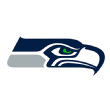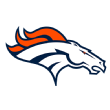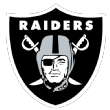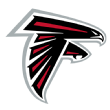We treat the first split of any season like it's the most important stretch of the year. Week 1 of the NFL season feels more important than Week 7, a player's first start feels more important than his fifth, and outside of perhaps the final quarter of the year, the first quarter of the season even feels most meaningful -- still-hopeful fantasy owners nod -- even if it's all but forgotten by the time December rolls around.
I like giving out awards for each quarter of the season for a couple of reasons. One, handing out awards is fun. That part is easy. The other reason is that it's useful to look back and view perception at a given moment in time. When I wrote this column after four weeks last year, I gave Aaron Rodgers the MVP award in the middle of what looked to be another dominant season. Rodgers had 11 touchdowns against no picks then. He threw 20 touchdowns against eight picks in the ensuing 12 games.
With that in mind, I've gone through and made my picks for the seven key NFL awards through the first four games of the season. These are the players I would pick given the way the league has voted for these awards in years past; in other words, even if I think Joe Thomas deserves Offensive Player of the Year, I'm not going to pick him because the league doesn't value offensive linemen for awards that way. These also aren't the players I necessarily think will win these awards at the end of the year, but the players who have earned it as of right now for the first four weeks of the season.
Let's start with a player who I have to admit I had written off in my head, which makes him a perfect candidate for the trophy he's receiving ...

Comeback Player of the Year: Jimmy Graham, TE, Seahawks
This seems like a straightforward award to start. Little was expected from Graham after he tore his patellar tendon on Nov. 29 last year, an injury that has dramatically impacted careers more than any other injury in years past. Victor Cruz, who has made a modest return from his own patellar tear this season, took nearly two full years to recover from his injury and the subsequent problems that popped up during his rehab.
And yet, after a slow start, Graham has posted consecutive 100-yard games in the past two contests for Seattle. That's as many as he mustered across 27 games in 2014 and 2015 combined, and the first time he has hit triple digits in consecutive weeks since a stretch of four such games in September 2013. There are still plenty of comebacks on their way, and I could see arguments for Cruz or even Melvin Gordon, but Graham's return to form this soon after a patellar tear is unprecedented.

Defensive Rookie of the Year: Jalen Ramsey, CB, Jaguars
It was an ugly first month of the year for debuting defenders. Joey Bosa, the league's top-drafted defensive player, never suited up, one of four first-round defenders to miss the first four games because of injury. Players such as Robert Nkemdiche, Karl Joseph and Myles Jack struggled to get on the field for defensive snaps for part or all of the month, while Eli Apple and De'Vondre Campbell were sidelined with injuries before the month was finished. Just eight rookies have suited up for 200 defensive snaps or more through four games.
As a result, while the Offensive Rookie of the Year award might be the toughest choice to make, this one is the easiest. With apologies to Xavien Howard, the clear choice is Ramsey. While he has drawn headlines for feuding with Steve Smith Sr., Ramsey has been the best player on the much-improved Jaguars defense through four weeks. (The Jags are 11th in defensive DVOA after finishing 26th, 20th, 28th and 28th over the past four seasons.) Although he initially seemed to figure in the Jacksonville lineup as a slot corner when teams came out with an extra wide receiver, the fourth overall pick has played every snap each of the past three weeks. When Prince Amukamara returned from an injury last week, it was expensive free agent Davon House who went to the bench, not Ramsey. For all the veterans Jacksonville has imported, it's the young guns -- Ramsey, fellow rookie Yannick Ngakoue, Dante Fowler Jr. and Telvin Smith -- who currently stand out for the Jags.

Offensive Rookie of the Year: Dak Prescott, QB, Cowboys
Oh boy. This one isn't fair. Linemen have no hope of winning this award, sadly, but Joe Thuney and Cody Whitehair have been effective interior linemen from the jump. Sterling Shepard has been a promising second banana to Odell Beckham Jr. Will Fuller has been even better, terrifying teams who are otherwise occupied with DeAndre Hopkins with his speed and making the most of the space he subsequently has been afforded. He's on pace for nearly 1,300 receiving yards. Fuller has a return touchdown, but Tyreek Hill might already be one of the best return men in football.
And yet, all of those guys aren't even close. It's a three-person race right now between Prescott, his teammate Ezekiel Elliott and Eagles quarterback Carson Wentz. I think you could make a case for and against each of the three candidates, so let's do that, starting with Elliott. Dallas' first-round pick leads the league in rushing yards with 412; after a couple of slow performances to start the season and a costly fumble against Washington, he has produced games with 138 and 140 rushing yards in consecutive weeks. And while the argument was always going to be that Elliott would be a product of his offensive line, those two big games have come without star left tackle Tyron Smith, and starting guard La'el Collins missed Week 4 before going on injured reserve.
But I can't bring myself to pick a running back -- even an excellent one -- over a quarterback playing at a high level. That leaves Wentz and Prescott. Wentz has been steady as can be over his first three starts, avoiding turnovers altogether while taking sacks on just 3.8 percent of his dropbacks. Wentz's opponent-adjusted QBR of 67.7 is eighth in the league, and his numbers would look even better if the former North Dakota State star's receivers would offer any help: 6.9 percent of Wentz's passes have been dropped, the second-highest rate in the league behind Matthew Stafford.
At the same time, though, Wentz is excelling in the same low-risk system Alex Smith enjoyed in Kansas City. His average pass has traveled just 7.0 yards in the air, 26th in the league. His receivers are second in terms of yards after catch, which hasn't been a repeatable skill for quarterbacks, suggesting it's mostly random. The best pass defense he has played through three weeks is that of the Bears, who are 12th in DVOA. Wentz is doing an excellent job, and his ability to read defenses and quickly find his hot receiver for easy short-to-intermediate gains is going to ensure a high floor.
Prescott has just been a tiny bit better, especially when you consider that he has been without his franchise left tackle for two games and was missing Dez Bryant last week. I was concerned that Prescott was going to be a checkdown artist given how he played in the preseason, but the fourth-rounder has been able to throw downfield once the Cowboys started creating deeper routes for him over the middle of the field. QBR isn't a be-all, end-all statistic (even before a small sample), but it tries to encapsulate all that a QB does, and Prescott is 16.2 points ahead of Wentz and third in the NFL so far this season.
Even if you want to argue that Wentz has narrowly been the better passer this season -- and passer rating and NY/A suggest that he has been -- Prescott has added far more value as a runner (which QBR measures). Excluding kneel-downs, Wentz's six carries have produced 27 yards, but with as many fumbles as first downs (one of each). Prescott has carried the ball nine times for 64 yards, and those runs have produced six first downs and two touchdowns without any fumbles. In a close fight, that's just enough to push the needle Prescott's way.

Coach of the Year: Gary Kubiak, Broncos
I wouldn't blame anybody for picking Mike Zimmer here, and there's an argument for Doug Pederson, who has pushed Philadelphia forward after the end of the Chip Kelly era. They've all been great. I think we're also collectively underestimating what Kubiak has done, though. Yes, Pederson has had to bring along a rookie quarterback, and Zimmer has built a suffocating defense and won with Sam Bradford, who is playing the best football of his career.
Kubiak is winning with Trevor Siemian at quarterback. Wentz was the second overall pick. Siemian was the 250th. The Broncos also have beaten a pair of playoff teams in the Panthers and Bengals, and while they did win it all last year, Denver is doing this without eight of the players who started in the Super Bowl, nine if you include the injured DeMarcus Ware. Some will be biased against Kubiak because of how his time in Houston came to a close, but the former Broncos backup deserves credit for what he's doing with a team in transition right now.

Defensive Player of the Year: Von Miller, Broncos
Keeping the Broncos theme going, Miller seems like the obvious choice as Defensive Player of the Year after four games with J.J. Watt's reign sadly coming to an end. It's fair to say that he is surrounded by great players in Denver, but Miller also is the most productive Bronco of all. He leads the league in sacks (5.5), is tied for third in knockdowns (eight), and has a forced fumble for good measure. And if there were any argument that Miller might be in part a product of having Ware (and before him Elvis Dumervil) around in the lineup, Miller has produced 4.5 sacks in his three most recent games, during which Ware played a total of 18 snaps.
After Miller, there's a pool of players in the discussion. Aaron Donald continues to do Aaron Donald things, leading the league with 12 knockdowns when nobody else has more than nine. He also has four tackles for loss on run plays. Carlos Dunlap has been freakishly effective batting down passes, as he has five and nobody else in the league has more than two. Harrison Smith might attract some attention as the star player on Minnesota's devastating defense. Right now, though, the line starts with Miller.

Offensive Player of the Year: Derek Carr, QB, Raiders
Last year, Cam Newton won both the AP MVP award and the AP Offensive Player of the Year trophy. On one hand, that makes sense: Of course, if a quarterback is the league's most valuable player at any position, he's also the league's most valuable offensive player. At the same time, though, the AP voters have spent most of their time voting for one offensive player as MVP and another one as Offensive Player of the Year. I'm going to stick with that.
Without getting to my MVP vote quite yet, we're left with a few Offensive Player of the Year candidates. The rule for this award, at least with me, is that a running back or a receiver has to be head and shoulders above the competition to overcome the positional value of playing quarterback. The best running back in the league in terms of combining volume and efficiency is probably Isaiah Crowell, but realistically, a running back for the 0-4 Browns isn't winning player of the year. Neither Elliott nor Crowell stand out from the pack.
At receiver, Julio Jones is coming off of a 300-yard game and leads the league in receiving yards, but he had just 188 yards in his three previous contests. With 488, Julio is just 6 yards ahead of Marvin Jones and 20 ahead of A.J. Green. Is Julio really outplaying his brethren to the point where he stands out as the best offensive player in football? I don't think that would be an accurate statement. Another 300-yard game, maybe ...
So then, it comes down to a quarterback. I think there's an argument for Russell Wilson, given that he's playing behind a porous offensive line and is down to one leg and is still managing to post a passer rating within one point of 100. The downside is that the ankle and knee injuries have extinguished Wilson's ability to run, as he has just 15 rushing attempts for 28 yards this year. What Philip Rivers has been able to accomplish missing as many as the top four targets of his arsenal has been remarkable, as he's posting a 104.5 passer rating with seven touchdowns against one desperate fourth-and-long pick, but he has been doing that for years and never received real consideration for this award. Ben Roethlisberger doesn't have the numbers, and Bradford doesn't have the volume.
Which all leaves Carr, who has had a remarkable start to the year. His breakout season was 2015, but Carr is breaking out again this year. His numbers in every notable category -- completion percentage, yards per attempt (and all its variations), interception rate and sack rate -- have improved again this year, in some cases dramatically. (The same guy who was completing 58.1 percent of his passes two years ago is up to 68.1 percent this season.) He has nine touchdowns against just one interception and already led two fourth-quarter comebacks for victories.
The best arguments you can make against Carr are that he throws short passes and gets a lot of help. In a way, they're true. Carr's average pass travels 7.0 yards in the air, no different from Wentz's and below the league average of 7.9 air yards per pass. He also benefits from playing behind a great offensive line, with the combination meaning that Carr has been pressured on just 16.5 percent of his passes this year. Only Drew Brees has been bothered less frequently. The flip side of that argument, though, is that Carr has gotten no help from his defense, which has allowed 39 points in the fourth quarter this season and gave up more than 500 yards in each of the first two games. He has been the second-most productive quarterback in the league in 2016.

Most Valuable Player: Matt Ryan, QB, Falcons
Carr just hasn't been Matt Ryan, who leads the league in every meaningful statistical category:
You might argue that he wouldn't be atop all these leaderboards without Julio Jones, and maybe that's true. In Week 3, though, when the Saints tried to eliminate Jones and held him to one catch on seven targets, Ryan went 19-of-23 for 224 yards throwing to his other receivers. Ryan and offensive coordinator Kyle Shanahan have generally done a much better job of spreading the ball around this season; Jones has been targeted on 24.3 percent of Ryan's passes this year, down from 33.1 percent last year, and that's even with new addition Mohamed Sanu limited by injury.
Ryan hasn't been perfect; even last week, I noted how he struggled to find Jones when he was open for those deeper throws, and Ryan included a pick-six with another pass that should have been intercepted by Luke Kuechly. There's no blow-away candidate this year through four weeks. Ryan, however, is playing the best football we've seen from him since the first month of the 2012 season, when he also was a viable MVP candidate. Falcons fans who reminisce longingly at that 13-3 season have to be excited to see Ryan and their team return to form.
